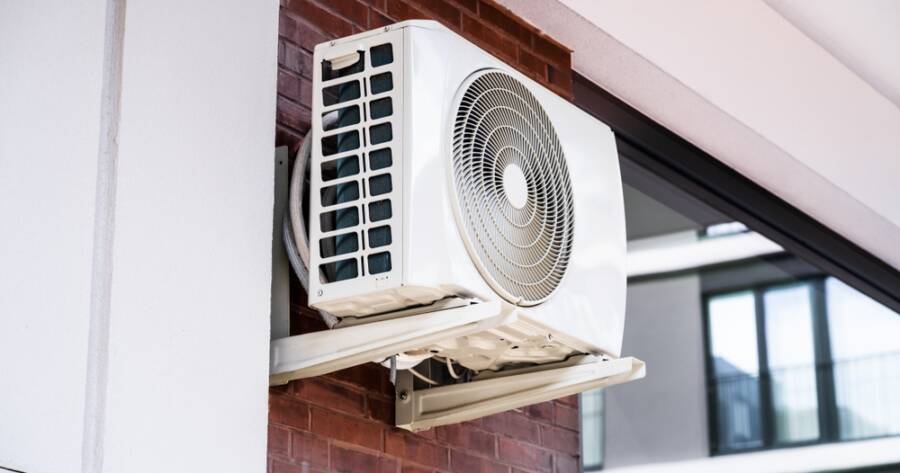Mini split heat pumps offer efficient heating and cooling solutions for residential and commercial spaces. These systems provide precise temperature control, energy savings, and enhanced comfort without the need for ductwork. Let’s explore the advantages!
What Are Mini Split Heat Pumps?
Mini split heat pumps are ductless heating and cooling systems that provide efficient and targeted temperature control for individual rooms or zones within a building. Unlike traditional central heating and cooling systems that rely on a network of ducts to distribute conditioned air throughout the entire structure, mini split heat pumps function independently, allowing users to customize the temperature in each room according to their preferences.
These systems consist of an outdoor unit that houses the compressor and condenser, and one or more indoor units, also known as air handlers, that are mounted on the walls or ceiling of the rooms they serve. 1 Refrigerant flows between the outdoor and indoor units, absorbing heat from the room during cooling mode and releasing it outside, or extracting heat from the outside air and transferring it indoors during heating mode.
Mini split heat pumps offer a range of advantages over traditional HVAC systems, including precise temperature control, energy efficiency, quiet operation, and flexible installation options. They are particularly well-suited for homes, apartments, and small commercial spaces where individual room temperature control is desired.
Discover the Advantages of Mini Split Heat Pumps
Mini split heat pumps provide several advantages that make them an attractive choice for residential and commercial spaces. One of the key benefits is their ability to deliver precise temperature control. Each indoor unit can be independently controlled, allowing users to set different temperatures for different rooms. 2 This level of control enhances comfort and reduces energy waste by eliminating the need to heat or cool unoccupied rooms.
Mini split heat pumps are also highly energy-efficient. They utilize advanced inverter technology that adjusts the compressor speed to match the heating or cooling demand, minimizing energy consumption. Additionally, these systems can operate in both heating and cooling modes, making them a versatile solution for year-round comfort.
Furthermore, mini split heat pumps are known for their quiet operation. The outdoor units are typically located away from living spaces, and the indoor units operate at low noise levels, ensuring a peaceful environment indoors.
Uncover Energy Efficiency and Comfort with Mini Split Heat Pumps
Mini split heat pumps offer exceptional energy efficiency, making them an environmentally friendly and cost-effective choice for heating and cooling. They utilize advanced technologies such as variable speed compressors and inverter-driven fans to optimize energy consumption. By precisely matching the system’s output to the actual heating or cooling needs, mini split heat pumps minimize energy waste and reduce electricity bills.
In addition to energy efficiency, mini split heat pumps provide superior comfort. They distribute conditioned air evenly throughout the room, eliminating hot or cold spots. The indoor units also feature adjustable airflow direction, allowing users to direct the air where it is needed most.
Furthermore, mini split heat pumps offer flexible installation options. They do not require extensive ductwork, making them ideal for both new construction and retrofit projects. The compact design of the indoor units allows for discreet placement on walls or ceilings, preserving the aesthetics of the space.
Learn More About Mini Split Heat Pumps
Mini split heat pumps represent an innovative and efficient approach to heating and cooling. Their ability to provide precise temperature control, energy efficiency, quiet operation, and flexible installation makes them a compelling choice for residential and commercial spaces.
To further explore the benefits and applications of mini split heat pumps, consider consulting reputable sources such as industry reports, academic journals, and official publications. These resources provide in-depth information and insights into the technology, helping you make informed decisions about your heating and cooling needs.

